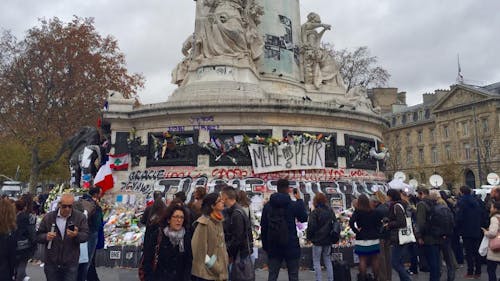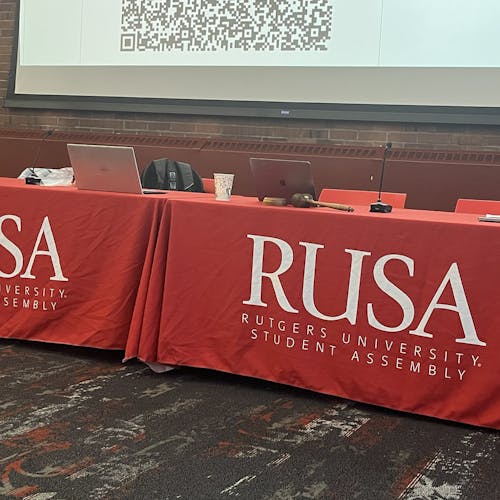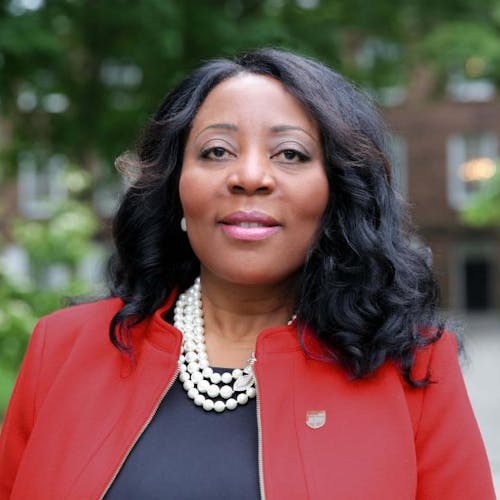Across seas, students continue to study abroad despite recent terrorist attacks

A series of terrorist attacks last month killed 130 people and wounded 368 in Paris, also the location where many students from Rutgers are spending their semester studying abroad.
As news of the recent attacks went out, the study abroad program at Rutgers contacted all the students studying in France. Administration was able to account for students and make sure they were okay within a matter of hours, said Giorgio DiMauro, director of the Rutgers Center for Global Education.
“Since then we have reached out to everyone studying abroad to make sure they are well and to offer the possibility of counseling,” DiMauro said. “We have been monitoring events in Europe carefully as well as all locations where our students study abroad.”
There have only been very few students who decided to return to the U.S. early, while the majority are continuing their semester abroad, DiMauro said.
“(Global Advancement and International Affairs) has also reached out to all students studying here at Rutgers from France, both degree-seeking students and exchange students, to make sure they are getting the support they need,” DiMauro said.
Graduate students in the Department of French organized a “Global Solidarity Forum/Teach In" about the recent events in Beirut, Ankara and Paris on Nov. 23 that helped students to work through questions and concerns, he said.
Kurt Butka, a School of Arts and Sciences senior who studied abroad last year, said the news of recent attacks in Paris affected him in a weird way.
“I have a lot of friends over there, both French as well as American, and my immediate response was obviously to worry about and contact them. Everybody was okay, but even after that, I felt a strange sense of being unsettled,” Butka said. “I lived there for a year and despite the knowledge that my loved ones were safe, the fact that it happened at all was really derailing on a personal level.”
Mushin Parson, a School of Environmental and Biological Sciences senior and also a former study abroad student, was horrified and disheartened by the attacks in Paris.
“(I was horrified) not only because of the many individuals that were murdered and injured in the event, but also because I knew it would only exacerbate some of the city’s issues with xenophobia,” Parson said.
While the study abroad program at Rutgers has made efforts to get in contact with students, give them support and monitor events in Europe carefully, both Parson and Butka do not think that the department can do much else.
“It’s hard to predict an event like this, but what the department could do is encourage students to have open dialogue with their directors, as well as other experienced mentors, about their concerns,” Parson said. “It can be sobering to hear from someone like that instead of another student or a sensationalized news source.”
DiMauro said there have not been any direct effects to the study abroad program, and none of the programs themselves have been cancelled. As for how students can be more alert or aware, DiMauro said students should be aware of their surroundings and should practice the “see something, say something” ideology.
“They should pay attention to all alerts and notifications from the U.S. Department of State, from Rutgers and from their host institutions and follow all instructions. They should (also) make sure that they inform their hosts and Rutgers of any travel plans and provide us with detailed itineraries,” he said. “They should make sure to have working cell phones with them at all times and keep them on and charged.”
Parson added that his advice to prospective study abroad students is to not let events like this scare them out of studying in a city like Paris, which is still a relatively safe area of the world.
“You should obviously be as careful as possible and take advice from natives and other people who are familiar with your host city. That being said, the real experience comes when you take calculated risks, and deciding to stay at home is a bad start,” he said.
Butka said his mindset about the whole thing is to not stop living his life because of something that may or may not happen.



